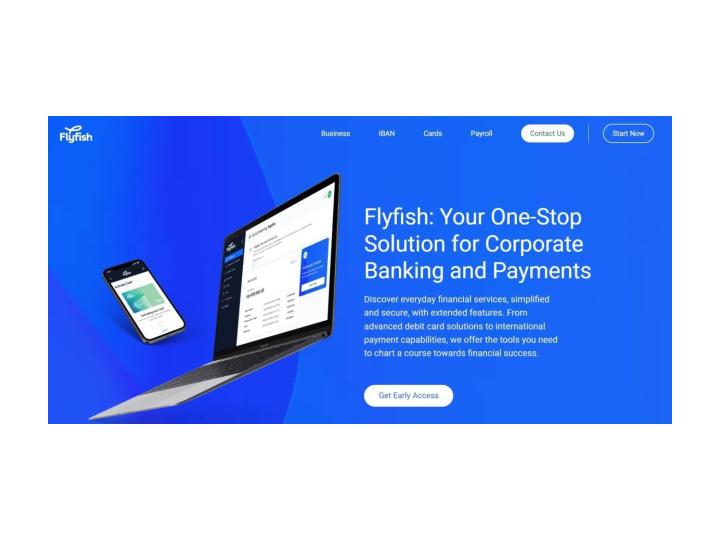What Is A Blogging

In today’s digital age, blogging has emerged as a powerful tool for individuals and businesses alike to share their thoughts, expertise, and experiences with the world. But what exactly is blogging, and how can you get started on your own blogging journey? IIn this comprehensive guide, we’ll explore the ins and outs of blogging, from its origins to practical tips for success. Additionally, we’ll delve into the question, what does blog stand for?
Understanding the Basics of Blogging
Understanding the basics of blogging is essential for anyone looking to embark on their digital journey. At its core, blogging involves regularly publishing content on an online platform, known as a blog. Unlike traditional websites, blogs offer a dynamic and informal space for individuals and businesses to share their thoughts, expertise, and experiences with the world.
From personal diaries to niche-focused platforms, the world of blogging is diverse and ever-evolving. By grasping the fundamentals of blogging, including its history, types, and significance, aspiring bloggers can lay the groundwork for creating compelling content and engaging with their audience effectively.
What Exactly Is Blogging?
At its core, blogging is the act of publishing content on the internet in the form of a blog. A blog, short for “weblog,” is a regularly updated website or online platform where an individual or group of individuals share their thoughts, opinions, or expertise on a particular topic. Unlike traditional websites, which are often static and formal, blogs are dynamic and informal, allowing for more personal expression and interaction with readers.
The History of Blogging
Blogging traces its roots back to the early 1990s when the concept of online diaries or journals first emerged. Early bloggers used simple platforms to publish their thoughts and experiences online, paving the way for the blogging revolution that would follow. One of the earliest known blogs, “Links.net,” was created by Justin Hall in 1994 and served as a platform for him to share his personal reflections and links to interesting websites.
Over the years, blogging evolved from a niche hobby to a mainstream form of communication and expression. Platforms like Blogger (founded in 1999) and WordPress (launched in 2003) democratized the process of creating and publishing blogs, making it accessible to people of all backgrounds and interests.
Types of Blogs
Blogs come in various shapes and sizes, catering to a wide range of interests and audiences. Some common types of blogs include:
- Personal Blogs: These blogs are often used as online diaries or journals, where individuals share their personal experiences, thoughts, and reflections.
- Business Blogs: Businesses use blogs to showcase their products or services, share industry insights, and engage with customers and clients.
- Niche Blogs: Niche blogs focus on a specific topic or subject area, such as travel, fashion, food, or technology. These blogs attract readers with a shared interest in the niche topic.
Getting Started with Blogging
Getting started with blogging is an exciting journey filled with endless possibilities. Whether you’re passionate about sharing your personal experiences, promoting your business, or exploring niche topics, blogging offers a platform for creativity and expression. To begin, choose a blogging platform that suits your needs, such as WordPress or Blogger. Next, select a domain name and customize your blog’s design to reflect your style. Then, start creating compelling content that resonates with your audience. Remember to stay consistent, engage with your readers, and always strive to provide value. With dedication and perseverance, your blogging journey is just beginning.
Why Start a Blog?
The decision to start a blog can be a rewarding one, offering numerous benefits for both individuals and businesses alike. Some reasons to start a blog include:
- Personal Expression: Blogging provides a platform for individuals to express themselves creatively and share their passions and interests with the world.
- Building an Online Presence: For businesses, blogging can help establish credibility and authority in their industry, attracting potential customers and clients.
- Monetization Opportunities: With the right strategy, blogs can be monetized through various methods such as advertising, sponsored content, and affiliate marketing.
Choosing a Blogging Platform
When it comes to choosing a blogging platform, there are several options to consider, each with its own set of features and benefits. Some popular blogging platforms include:
- WordPress: WordPress is one of the most widely used blogging platforms, known for its flexibility, customization options, and user-friendly interface.
- Blogger: Blogger is a free blogging platform owned by Google, making it easy to set up and use for beginners.
- Squarespace: Squarespace offers an all-in-one platform for building and hosting websites, including blogging capabilities with sleek templates and design options.
Setting Up Your Blog
Once you’ve chosen a blogging platform, it’s time to set up your blog and start creating content. Here are some steps to get started:
- Choose a Domain Name: Select a memorable and relevant domain name for your blog that reflects your brand or niche.
- Select a Theme: Choose a theme or template for your blog that suits your style and preferences.
- Customize Your Design: Customize your blog’s design and layout to create a unique and visually appealing user experience.
Creating Compelling Content
Creating compelling content is the cornerstone of successful blogging. It involves crafting engaging and valuable posts that resonate with your audience. From attention-grabbing headlines to well-structured narratives, every aspect of content creation plays a crucial role in capturing and maintaining readers’ interest.
By understanding your audience’s needs and interests, you can tailor your content to provide solutions, insights, or entertainment that keeps them coming back for more. Compelling content sparks curiosity, prompts action, and fosters meaningful connections with your readers, ultimately driving traffic, engagement, and growth for your blog.
Finding Your Niche
Finding your blogging niche is essential for attracting and retaining readers. Consider your interests, expertise, and target audience when selecting a niche for your blog. Research popular topics and trends within your niche to identify opportunities for unique and valuable content.
Planning Your Content Strategy
A well-thought-out content strategy is crucial for the success of your blog. Create a content calendar to plan and organize your blog posts, ensuring consistency and relevance. Consider the needs and interests of your target audience when brainstorming content ideas and topics.
Writing Engaging Blog Posts
Writing engaging and compelling blog posts is key to attracting and retaining readers. Follow these tips for creating attention-grabbing content:
- Craft Attention-Grabbing Headlines: Use catchy and descriptive headlines to capture readers’ attention and entice them to click.
- Provide Value: Offer valuable and actionable insights in your blog posts that address your readers’ needs and interests.
- Optimize for SEO: Incorporate relevant keywords and phrases in your blog posts to improve search engine visibility and attract organic traffic.
Building and Growing Your Audience
Building and growing your audience is a pivotal aspect of successful blogging. Engaging with your readers through various channels like social media, email newsletters, and comments fosters a sense of community. Providing valuable content tailored to your audience’s interests and needs is key to attracting and retaining followers. Leveraging SEO techniques to improve your blog’s visibility in search engine results also plays a crucial role in audience expansion.
Actively participating in online forums and networking with other bloggers can help broaden your reach. By consistently delivering quality content and nurturing relationships with your audience, you can cultivate a loyal and engaged following over time.
Promoting Your Blog
Promoting your blog is essential for increasing visibility and attracting readers. Explore various marketing channels such as social media, email marketing, and guest blogging to promote your content and reach a wider audience.
Engaging with Your Audience
Building a strong relationship with your audience is crucial for long-term success. Engage with your readers through comments, social media, and email to foster a sense of community and connection. Respond to feedback and questions promptly to show that you value their input.
Analyzing Your Blog’s Performance
Tracking and analyzing your blog’s performance is essential for identifying areas of improvement and optimizing your strategy. Use tools like Google Analytics to track key metrics such as traffic, engagement, and conversion rates. Use this data to make informed decisions and refine your approach.
Monetizing Your Blog
Monetizing your blog opens up avenues for turning your passion into profit. By strategically leveraging various monetization methods, bloggers can generate revenue while providing value to their audience. From affiliate marketing and sponsored content to display advertising, there are numerous ways to monetize your blog effectively.
By identifying the most suitable monetization strategies for your niche and audience, you can maximize your blog’s revenue potential. However, it’s essential to maintain authenticity and transparency in your monetization efforts to preserve trust with your audience. With a well-executed monetization strategy, your blog can become not only a creative outlet but also a lucrative business venture.
Exploring Monetization Options
Monetizing your blog can open up opportunities for generating revenue and turning your passion into profit. Some common monetization options for bloggers include:
- Affiliate Marketing: Promoting products or services and earning a commission for sales made through your affiliate links.
- Sponsored Content: Partnering with brands or companies to create sponsored posts or reviews in exchange for payment.
- Display Advertising: Placing ads on your blog and earning revenue based on impressions or clicks.
Maximizing Revenue Potential
To maximize your blog’s revenue potential, focus on growing your audience and building relationships with your readers. Experiment with different monetization strategies and partnerships to find what works best for your blog. Stay authentic and transparent with your audience to maintain trust and credibility.
USA Blogging Trends
In the United States, blogging has become an integral part of the online landscape, with millions of blogs covering a wide range of topics and interests. Let’s take a closer look at some blogging trends shaping the digital landscape in the USA:
1. Rise of Influencer Blogging
In recent years, influencer blogging has gained immense popularity, particularly in the lifestyle, fashion, and beauty niches. Influencers leverage their online platforms to share their experiences, recommendations, and product reviews with their followers, often collaborating with brands on sponsored content and partnerships. This trend reflects the growing influence of social media and the increasing demand for authentic and relatable content.
2. Focus on Niche Blogging
With the saturation of the blogging market, many bloggers are opting to focus on niche topics to stand out from the crowd and attract a dedicated audience. Niche blogs cater to specific interests and demographics, allowing bloggers to establish themselves as experts in their respective fields. From vegan cooking to sustainable living, niche blogging continues to thrive as readers seek specialized content tailored to their interests.
3. Mobile Optimization
As mobile usage continues to rise, mobile optimization has become a top priority for bloggers and website owners. Ensuring that your blog is mobile-friendly is essential for providing a seamless user experience and maximizing engagement. Responsive design, fast loading times, and intuitive navigation are key factors in optimizing your blog for mobile devices.
4. Video Blogging (Vlogging)
In addition to traditional written blogs, video blogging, or vlogging, has emerged as a popular format for content creators to connect with their audience. Platforms like YouTube and TikTok have democratized video creation, allowing bloggers to share their stories and expertise through dynamic and engaging video content. From tutorials to vlogs, video blogging offers a versatile and immersive way to communicate with viewers.
5. Voice Search Optimization
With the rise of voice-enabled devices like smartphones and smart speakers, voice search optimization has become a priority for bloggers seeking to improve their visibility and accessibility. Optimizing your blog for voice search involves understanding how users phrase their queries verbally and incorporating natural language and conversational keywords into your content. By optimizing for voice search, bloggers can position themselves for success in an increasingly voice-driven digital landscape.
6. Community Building and Engagement
Building a strong sense of community around your blog is essential for fostering long-term relationships with your audience. From hosting live events and webinars to creating private Facebook groups, bloggers are finding creative ways to engage with their readers and create a sense of belonging. By nurturing a loyal community of followers, bloggers can amplify their reach and impact while cultivating a supportive and interactive online environment.
7. Authenticity and Transparency
In an era of fake news and sponsored content, authenticity and transparency have become paramount for bloggers seeking to build trust with their audience. From disclosing sponsored partnerships to sharing personal stories and experiences, bloggers are embracing transparency as a cornerstone of their brand identity. By being authentic and genuine, bloggers can forge deeper connections with their audience and establish themselves as credible and trustworthy sources of information.
Conclusion
In conclusion, blogging offers endless opportunities for individuals and businesses to share their voices, connect with others, and even generate income. Whether you’re a seasoned blogger or just starting out, the key to success lies in creating valuable content, engaging with your audience, and staying true to your passions and interests. So what are you waiting for? Start your blogging journey today and join the vibrant community of bloggers around the world!
Remember, blogging is not just about writing—it’s about building relationships, sharing stories, and making a difference in the lives of others. Embrace the journey and enjoy the ride.





